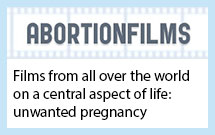A System of Soft Terror: Life and Death in Ireland
counterpunch.org, December 7-9, 2012 by JAMES DAVIS
O Ireland my first and only love
Where Christ and Caesar are hand and glove
– James Joyce
Ireland has a peculiar reputation. On the one hand its colonized history has lent it a prestigious place in the canon of anti colonial and revolutionary eschatology, while on the other hand clerical and patriarchal supremacy has made it famous as a laboratory of authoritarian repression. However, in recent years most militants have made their peace with Britain, greeted the Queen and taken seats at the table. At the same time the relative decline in the power of the Catholic Church resulting from secularization and the scandal and cover-up of clerical child abuse has rocked the regime of social shame and control that has been in place since the foundation of the state.
In fact, Ireland’s human rights record is deceptive. While it has the appearance of a place that guarantees gender equality many of these developments have been the result of dictats from the EU. For example, an EU directive forced the Irish state to treat men and women equally with regard to welfare in 1984 and the European Court of Human Rights ordered the decriminalization of homosexuality in 1988. Were it up to the Irish state there is no reason to think there would have been reform on these matters. The liberalisation of Ireland over the past couple of decades is in many respects a mirage, even if the state and the courts operate far to the right of the population on many questions.
Savita Halappanavar walked into this contradiction when she presented herself at Galway’s NUI hospital on October 21st suffering from severe back pain. She was 17 weeks pregnant and in the midst of a miscarriage. After learning that the pregnancy was not viable, she asked several times for a termination but was refused, being told by the doctor “it’s a Catholic country so we won’t terminate while the foetus is still alive.” She died in the ICU a week after she was admitted, apparently of septicemia. In the timeline of events published widely in the Irish media and presumably provided by sources in the hospital no mention is made of the patient’s request for a termination. Instead it reports clinically, “After 24 hours of admission, antibiotics are given”…“Patient remains unwell”…“Patient continues to deteriorate” and finally, “Patient dies in the ICU”.
Read full article: www.counterpunch.org






